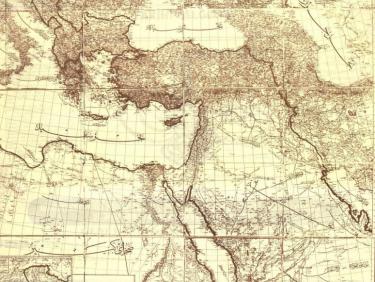Faculty of Philosophy Islamic and Middle Eastern Studies
Students of Islamic and Middle Eastern Studies adopt a non-denominational historical perspective in the study of the history, society, literature and religion of societies shaped by Islam in the Middle East, North Africa, and Southeastern Europe.
Islamic and Middle Eastern Studies is a non-denominational field of historical, philological and area studies. It encompasses historical, social, cultural, political, economic, legal, literary and religious aspects with regard to regions shaped by Islam in the Middle East, North Africa, and Southeastern Europe from the seventh century to the present. The field thus combines sound knowledge of Arabic, Persian, and Turkish with methods of historical and philological research, benefitting from close interaction with neighbouring disciplines and subjects such as history, literary studies, religious studies, and linguistics, as well as other fields of regional and cultural studies. Contemporary research questions are thus addressed in the context of historical factors, whilst conversely, historical issues are considered in view of relevant contemporary aspects.

Special Features and Characteristics
At Heidelberg University, the complexity and diversity of Islamic and Middle Eastern Studies is reflected in a wide range of specialised language courses in conjunction with geographically and thematically varied thematic courses to enable individual specialisation, and a consistent focus on methodological plurality. Students are able to specialise in areas including early modern and modern history, as well as religious and intellectual studies, especially in the Ottoman Empire and its successor states. Heidelberg University’s department of Islamic and Middle Eastern Studies offers students the opportunity, almost unmatched by any other institution in Germany, to develop comprehensive knowledge and specialised skills in the study of manuscript sources in Arabic and Ottoman Turkish.
Research
Heidelberg University has two professorships in Islamic and Middle Eastern Studies. The first professorship specialises in the cultural, political, and social history of the Middle East, North Africa, and Southeastern Europe from the fifteenth to the twentieth century, and thus mainly on Ottoman Studies. Its main areas of research are:
- Cultural history of politics
- Empires and colonialism
- Transitions from pre-modern to modern societies
- Primary sources and palaeography
- Education and book culture
- Historiography and biography
- Pre-modern Turkish and Arabic literature
The second professorship focuses on religion and intellectual history in the Islamic world from a non-denominational perspective. Its current main areas of research are:
- Cultural history and the history of mentalities
- Arabic literature and intellectual history
- Theories and methods in Islamic Studies
- Islamic law
- Religious discourses and practices
Career Options
Graduates of Islamic and Middle Eastern Studies may pursue employment in the following areas:
- in the public sector
- in non-governmental organisations (NGOs) and humanitarian organisations
- in international and supranational organisations
- in intercultural communication and cooperation
- in integration work
- in adult education in Germany or abroad
- in media and communications, and journalism
- in the cultural sector and in cultural institutions
- in tourism
- in political and business consultancy
- in security agencies
Insights

I study Islamic and Middle Eastern Studies because I am interested in the languages, cultures and history of the Middle East.
Sebastian Libruks, 37, Islamic and Middle Eastern Studies, 7th semester Bachelor





